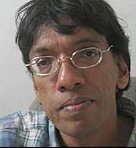Sufficient Consensus To Make PSC Meaningful
 The government’s determination to show progress in regard to a political solution and to improving its human rights image is evident in recent developments. During his recent visit, the Indian National Security Advisor Shivshankar Menon is reported to have urged government leaders to keep its promises to India. The Indian government’s position that the government should deliver on its promise to go beyond the 13th Amendment poses a major challenge. It is obvious that a country like India, which is no less than a global great power, and quite possibly a superpower in the near future, cannot accept being made to look being taken for a ride by its close neighbour in the eyes of the world. With President Mahinda Rajapaksa on the verge of taking over the Chairmanship of the Commonwealth, it appears that the government is desirous of demonstrating to India and to the international community that it is taking its international responsibilities more seriously. The government is now making a renewed effort to find a political solution to the ethnic conflict through the process of a Parliamentary Select Committee.
The government’s determination to show progress in regard to a political solution and to improving its human rights image is evident in recent developments. During his recent visit, the Indian National Security Advisor Shivshankar Menon is reported to have urged government leaders to keep its promises to India. The Indian government’s position that the government should deliver on its promise to go beyond the 13th Amendment poses a major challenge. It is obvious that a country like India, which is no less than a global great power, and quite possibly a superpower in the near future, cannot accept being made to look being taken for a ride by its close neighbour in the eyes of the world. With President Mahinda Rajapaksa on the verge of taking over the Chairmanship of the Commonwealth, it appears that the government is desirous of demonstrating to India and to the international community that it is taking its international responsibilities more seriously. The government is now making a renewed effort to find a political solution to the ethnic conflict through the process of a Parliamentary Select Committee.
The government has appointed a Parliamentary Select Committee (PSC) to find a political solution that would “empower the people to live together as one nation.” The initial meeting of the PSC was attended only by government members and not attended by any of the opposition parties. The government’s disappointment at this boycott is evident from its appeal to the visiting Indian national security advisor to persuade the TNA to join the PSC. The government appointed 19 members representing the spectrum of opinion on the subject including both hard line nationalist Sinhalese and progressive leftist parliamentarians but with some surprise exclusions, including its own alliance partner the SLMC and Prof. Tissa Vitarana who headed the government’s last attempt to arrive at a political solution. The opposition parties which were allocated 12 members did not appoint a single member and so the first meeting of the PSC could be described as a meeting of a government sub-committee rather than a PSC. Read More
A Method Of Wielding Power By The Same People Who Enjoyed Power In The Centre
By Rajiva Wijesinha -July 15, 2013
 Political Machinations: How the electoral system contributes to disfunctionality in regional governance
Political Machinations: How the electoral system contributes to disfunctionality in regional governance
In a forceful critique of attempts to amend the 13th Amendment to the Constitution, the Secretary General of the Liberal Party, Kamal Nissanka, also made no bones about the fact that the current Provincial Council system had many flaws. Though the Liberal Party has always been in favour of devolution, we have also noted that there are several things about the 13thAmendment that need improvement. However we believe that this is best done through comprehensive discussions and consensus, certainly not through contentious piecemeal adjustments.
But while several structural changes are desirable, Kamal also noted a very practical problem that I had not seen highlighted before. He wrote that the system ‘had become a method of wielding power by the same people who enjoyed power in the centre. Close relatives of leading politicians were promoted to stand for provincial councils making it a political extended family.’ Read More


